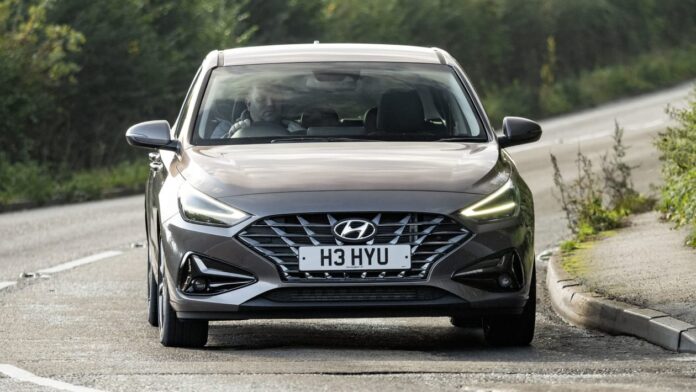The Hyundai i30 remains a competitive choice in the crowded family hatchback market, offering a blend of practicality, refinement, and value. While it doesn’t stand out as particularly exciting, it provides a well-rounded package that holds its own against rivals like the Vauxhall Astra and Volkswagen Golf. The i30 has undergone updates to stay relevant, but its age is beginning to show.
Core Strengths and Weaknesses
The i30’s key appeal lies in its standard equipment, refined ride, and reasonable running costs. It’s a car that simply works reliably, but doesn’t necessarily thrill. However, its engine options are limited, and the interior feels dated compared to newer competitors.
Key Pros:
– Comfortable for long journeys
– Well-equipped even in base trim
– Holds its value reasonably well
Key Cons:
– Uninspiring driving experience
– Limited engine choices
– Interior design feels outdated
Design and Interior: Functional, Not Flashy
Hyundai has tweaked the i30’s exterior with LED headlights and a revised grille, but the overall design remains conservative. Inside, the cabin is logically laid out, with physical controls for essential functions – a welcome contrast to some rivals overloading on touchscreen interfaces. The infotainment system, featuring a 10.25-inch touchscreen, is functional but visually unremarkable.
The materials used aren’t premium, but they are durable enough for everyday use. The i30’s age is visible in the design, lacking the modern flair of newer cars.
Performance and Handling: Competent, Not Engaging
The i30 is now powered by a single 1.5-liter turbocharged petrol engine. While adequate for everyday driving, it doesn’t offer the punch of some competitors. Acceleration to 62 mph takes around 9.6 seconds, making it adequate for motorways but not particularly sporty.
The handling is competent but unremarkable. It’s comfortable on the road, but lacks the engaging dynamics of a Vauxhall Astra. The steering feels lifeless, and while the manual transmission is decent, the optional automatic isn’t particularly responsive.
Practicality: A Sensible Choice for Families
The i30 is available as a five-door hatchback or estate (Tourer). Both offer reasonable boot space – 395 to 1,301 liters for the hatchback, and 602 liters for the estate. Rear passenger space is adequate for most adults, though taller individuals may find headroom limited.
The i30 isn’t ideal for towing, but it excels as a sensible, everyday vehicle.
Running Costs: Economical, But Not Class-Leading
The i30’s mild-hybrid engine delivers around 47.9 mpg, which is respectable but not the best in class. Insurance costs are sensible, and the car holds its value better than some rivals, depreciating at around 43-45% after three years.
However, there are no diesel or hybrid options, meaning company car drivers won’t benefit from tax advantages.
Pricing and Deals
New i30 hatchbacks start around £25,300 for the base Advance trim, rising to £28,500 for the N Line S. The Tourer estate begins at £24,300. Used models offer significant savings, with examples available for under £10,000.
The Verdict
The Hyundai i30 is a solid, if unremarkable, family hatchback. It won’t set your pulse racing, but it offers a reliable and well-equipped package at a competitive price. If you prioritize practicality and value over excitement, the i30 is worth considering. However, rivals like the Vauxhall Astra and Volkswagen Golf offer more engaging driving experiences and more modern interiors.




































